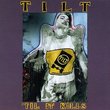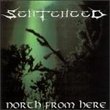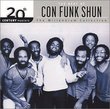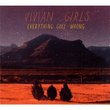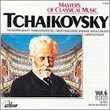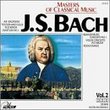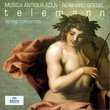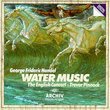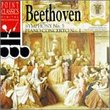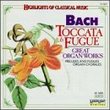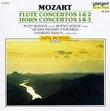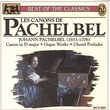| All Artists: Vivaldi, Manze, Toll, North Title: Manchester Sonatas 1-6 Members Wishing: 0 Total Copies: 0 Label: Harmonia Mundi Fr. Release Date: 11/21/1995 Genre: Classical Styles: Chamber Music, Historical Periods, Baroque (c.1600-1750), Instruments, Strings Number of Discs: 1 SwapaCD Credits: 1 UPC: 093046708924 |
Search - Vivaldi, Manze, Toll :: Manchester Sonatas 1-6
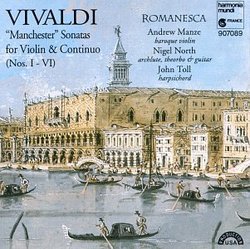 | Vivaldi, Manze, Toll Manchester Sonatas 1-6 Genre: Classical
|
Larger Image |
CD DetailsSimilar CDs
Similarly Requested CDs |
CD ReviewsGood but not great Alan Lekan | Boulder, CO | 10/15/2005 (3 out of 5 stars) "One does not have to get very far when exploring music of the Baroque era to recognize the notariety of Mr. Andrew Manze - considered by many a fan and critic alike to be one of the finest period violinist in the world. Some time ago, I started to listen to a lot of his music (including this CD) but was frankly surprized I was not as enthusiastic as others about some aspects of his playing. But, because he is so well reviewed by the press, I thought I must be missing something. Then I read critical reviews like the one by "Octavius" and think that maybe it is not my ears that are off.
There is no question of this violinist's extraordinary, lightening-fast playing - playing that leaves you with your mouth open in amazement at times. But, fine music is more than this. I summarize Mr. Manze's playing this way: the "blacker" the musical score (highly rhythmic, demisemiquaver-rich music), the more he excels and sounds brilliant ... but the barer the music page (adagios, largos, lyrical-rich music of mere crotchets and semibreves), the less alluring he sounds compared to his peer period fiddlers. Like the reviewer below notes, Italian music like Vivaldi has such a strong, inherent aria-like lyricism and passionate expressivity (which is part of what it means to be "Italian" historically) that it takes a special touch to bring this out - one of more inner emotive qualities than outer technical skills exclusively. If its sweet, singing tones you most admire, then others will excel more at this than Manze (who has a more "direct" style). I don't intend to offend Manze fans here, but some of his melodic lines sound somewhat awkwardly phrased and not quite right tonally - especially when compared to others like Biondi or Podger - and just does not wear well through a 75 minute CD (tracks 11 and 17 are just two examples). So, overall, I wouldn't rate this CD among the first choices among Romanesca's finer recordings. Their Biber and Schmelzer sontatas are some of their better recordings. The other available recording for this composition comes from fellow Baroque-specialist, Fabio Biondi, Allesandrini and others(Arcana) - musicians who seem more on-target at creating the right nuances, legato and tonal colorations that bring out this music's inherent singing voice. If you listen to any of Fabio Biondi's Vivaldi, you can hear this difference. While Manze brings an excitement and panache in many of the allegros, correntes and prestos here (as in track 12, 16 or 24), he seems to struggle more to find the smooth and flowing 'singing quality' needed to fully express Vivaldi's slower, cantabile movements. These impressions were confirmed in the Penguin Guide review of these two CD's which said, "... the sound of Andrew Manze's violin is rather raw ... while Fabio Biondi's tone is so much sweeter." Part of this difference may be due to the more spacious Arcana recording versus the closer sound-stage of the HM recording (though which is nicely balanced between instruments). Regardless of performance, these sonatas are important historically (discovered in the 1973 in the Manchester Music Library .. hence the title, "Manchester Sonatas") and reveal some new things about Vivaldi previously not fully appreciated perhaps." |

 Track Listings (24) - Disc #1
Track Listings (24) - Disc #1